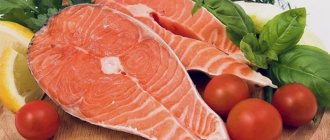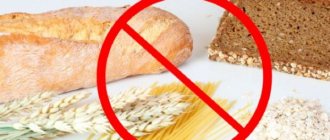10.02.2021 09:00
49254
Uric acid is present in the body of every person. But exceeding the standard value can cause serious health problems. This is why it is so important to strictly control the level of uric acid in the blood: get tested periodically, and also avoid excessive consumption of foods that increase its concentration.
Uric acid is present in the body of every person. But exceeding the standard value can cause serious health problems. This is why it is so important to strictly control the level of uric acid in the blood: get tested periodically, and also avoid excessive consumption of foods that increase its concentration. Today we will talk about what foods can cause an increase and decrease in urea levels in the body.
Uric acid - what is it?
Uric acid is a breakdown product of purine bases. The latter play a very important role in the body, as they participate in the formation of DNA and RNA, energy compounds (ATP), etc.
Purines can enter our body with food, or they can be synthesized from within - by body cells that break down as a result of natural aging or some disease, releasing these organic elements.
Liver and intestinal cells produce a special enzyme called xanthine oxidase. It breaks down purines, converting them into uric acid. The latter goes into the bloodstream and enters the kidneys. There it is filtered and naturally eliminated from the body. About 70% of the acid leaves our body along with urine. The rest enters the gastrointestinal tract, where it is partially absorbed by the bacteria living there. Another part comes out with feces.
An increase in the concentration of acid in the urine is called hyperuricemia. Because of this, crystals of sodium or potassium salts may begin to form in the precipitate (urate). The higher the concentration of urate in the body, the higher the risk of developing uraturia. This pathology accompanies many serious diseases, for example, gout.
In addition, an increase in urea concentration causes a change in the overall acidity within the body. A similar condition is observed in diabetes mellitus, lactic acidosis and some other diseases.
Traditional medicine
In addition to products that can be found in every home, there are effective recipes based on plant flowers or tree leaves. The following recipes will help answer the question of how to reduce the level of uric acid in the blood using folk remedies:
- A teaspoon of nettle juice 3 times a day. This plant increases the excretion of acid by the kidneys.
- Decoction of lingonberry leaves: 20 g of lingonberries are brewed in 200 ml of boiling water. After the decoction has steeped and cooled, drink 1 spoon 3 or 4 times a day.
- A decoction of birch leaves: two tablespoons of birch leaves should be brewed in 400 ml of boiling water. Boil the solution for 10 minutes, then leave to infuse for 30 minutes. Drink 50 ml of decoction during meals.
For gout, when the joints of the legs are affected, it is effective to make a foot bath of calendula, chamomile and sage. To do this, 200 g of plant flowers are boiled in 1.5 liters of water. Afterwards the broth is infused for 2 hours. The solution is filtered and added to the foot bath. The bath temperature should be a couple of degrees lower than body temperature (35-37°C). This method effectively relieves pain and redness of the joints.
Symptoms of excess uric acid and associated diseases
The main symptoms of hyperuricemia are:
- unpleasant sensation during urination (stinging, burning, etc.);
- constant feeling of an incompletely emptied bladder;
- feverish state, feeling of chills;
- fatigue, constant weakness throughout the body;
- negative sensations in the joints (ache);
- unpleasant feelings in the kidney area (may indicate that stone formation is underway in them).
If treatment is not started in time, hyperuricemia can provoke the development of serious diseases:
- gout One of the most popular pathologies resulting from a permanently increased concentration of uric acid in the body. It manifests itself in the form of severe pain and inflammation of the joints, which is caused by deposits of salt crystals in them;
- renal failure. It occurs due to the fact that too many toxins have accumulated in the organ, and it cannot cope with their processing. If the pathology is left untreated for a long time, the patient may require dialysis and even a kidney transplant.
Types of increase in urate in the blood
The choice of drugs that reduce the level of uric acid in the blood depends on the type of hyperuricemia. Only a qualified specialist can correctly identify it and prescribe the appropriate medicine.
There are two types of this pathological process:
- primary - an independent disease, the cause of which could not be determined;
- secondary - pathology manifests itself as a symptom of other diseases.
The most common disease that is accompanied by an increase in uric acid is gout. In this case, the toxic compound accumulates in excessive quantities for one of two reasons:
- increased production in the liver;
- worsening urinary excretion through the kidneys.
How to lower the level in the body
If the pathology was identified in the early stages and the increase in uric acid concentration is insignificant, you can regulate its level with folk remedies without resorting to medications. For example, use for these purposes:
- Apple vinegar. This product restores the alkaline balance in the body and effectively removes excess urea. To prepare a healthy drink, you need to take 1 tbsp. l. vinegar and dissolve in a glass of clean drinking water. The total volume should be divided into three servings and drunk throughout the day;
- citruses. Their action is similar to apple cider vinegar, so you can replace the latter with lemon juice. Squeeze one medium lemon per glass of water. The infusion should be drunk in the morning, on an empty stomach;
- baking soda. Effectively neutralizes uric acid and prevents kidney stone formation. To prepare the medicine, you need to take half a tablespoon of soda and dissolve it in a glass of water. The maximum course of treatment is 2 weeks, since soda has a side effect in the form of increased blood pressure.
The simplest and most effective way to prevent an increase in the concentration of uric acid in the body is to drink clean drinking water without gas. It improves filtration processes in the kidneys, resulting in toxins being eliminated naturally. The daily norm is 30 grams of liquid per 1 kg of weight for women and 40 grams per 1 kg of weight for men.
However, it is important to understand that any of these methods must first be agreed with your doctor. It is unacceptable to self-medicate and prescribe yourself certain medications or nutritional supplements.
Basic tips for reducing urate levels
Before moving on to specific medications, secrets of traditional medicine, and dietary recommendations, it is worth reviewing the basic advice of experts. They should be followed by anyone seeking to reduce uric acid levels. The patient should:
- Cure or achieve remission of the underlying disease. This applies to cases where hyperuricemia is secondary.
- Get rid of excess weight. Typically, the concentration of uric acid correlates with excess body weight.
- Strictly adhere to the recommendations of your doctor. This means that the prescribed medications must be taken regularly, in the required dose, without shortening the course of treatment on your own.
What foods increase acid content?
People who have elevated levels of uric acid in the body should be extremely careful about the following foods:
- seafood. Most of them are characterized by a high purine content. First of all, these are mussels, shrimp, oysters and crabs;
- red meat. These are pork and beef, especially fatty ones. The best solution is to completely eliminate these foods from your diet.
- legumes People suffering from high urea concentrations can consume lentils, peas or beans a maximum of twice a week;
- alcohol. First of all, beer is included in the taboo list. It affects uric acid levels even worse than seafood and meat. This drink is directly contraindicated for gout.
- sweets. These include carbonated drinks, packaged juices, and sweet pastries.
Thus, it is important not to forget that high levels of uric acid in the body can lead to serious pathologies. Therefore, it is necessary to monitor its level and take timely measures to reduce it.
Substance norm
Uric acid is a compound produced in liver cells. It is formed due to the metabolism of purine bases. It is excreted from the body through the kidney tubules, combining with carbon dioxide. Therefore, the presence of urates in the blood and urine is normal. It should be present there, but only in strictly limited quantities:
- the norm for men is 200-420 µmol/l;
- normal concentration in women is 150-340 µmol/l;
- the norm for children and adolescents is 110-320 µmol/l.
Hyperuricemia has a toxic effect on the entire human body. If there is such a result, a person should think about how to quickly reduce the level of uric acid in the blood.
Fully or partially limited products
To reduce uric acid levels, sharply limit:
- Offal (lungs, liver, tongue, kidneys, brains).
- Meat, meat products and any types of canned meat. Animal protein is limited to 1 g per 1 kg of weight. The red meat of young animals contains the highest amount of purines.
- Fish dishes (especially carp, halibut, anchovies, sea bass, sardines, tuna, mussels and herring) and canned food.
- Fish/meat/mushroom broths. In rare cases, you can use secondary broth (the first one is drained after boiling for 10 minutes).
- Sorrel and legume soups.
- Vegetables rich in oxalic acid (sorrel, radishes, cauliflower, asparagus, spinach, raspberries, cranberries), pickled vegetables.
- Cheeses, broth-based sauces (you can make them using vegetable broth).
- Legumes and mushrooms (porcini and champignons).
- Oatmeal and white rice.
- Chocolate, cocoa, red wine, tea and coffee, which contain purines.
- Confectionery products, brewer's yeast.
- Dried fruits (prunes are possible).
- Foods that stimulate the nervous system (spicy snacks and spices).
- Alcohol, the consumption of which can provoke gout attacks.
Table of prohibited products
| Proteins, g | Fats, g | Carbohydrates, g | Calories, kcal | |
Vegetables and greens | ||||
| spicy vegetables | 2,8 | 0,5 | 5,3 | 36 |
| vegetables legumes | 9,1 | 1,6 | 27,0 | 168 |
| cauliflower | 2,5 | 0,3 | 5,4 | 30 |
| green onion | 1,3 | 0,0 | 4,6 | 19 |
| bulb onions | 1,4 | 0,0 | 10,4 | 41 |
| canned cucumbers | 2,8 | 0,0 | 1,3 | 16 |
| pickles | 0,8 | 0,1 | 1,7 | 11 |
| radish | 1,2 | 0,1 | 3,4 | 19 |
| white radish | 1,4 | 0,0 | 4,1 | 21 |
| turnip | 1,5 | 0,1 | 6,2 | 30 |
| celery | 0,9 | 0,1 | 2,1 | 12 |
| tomatoes | 0,6 | 0,2 | 4,2 | 20 |
| canned tomatoes | 1,1 | 0,1 | 3,5 | 20 |
| horseradish | 3,2 | 0,4 | 10,5 | 56 |
| garlic | 6,5 | 0,5 | 29,9 | 143 |
| spinach | 2,9 | 0,3 | 2,0 | 22 |
| sorrel | 1,5 | 0,3 | 2,9 | 19 |
Fruits | ||||
| avocado | 2,0 | 20,0 | 7,4 | 208 |
| pineapples | 0,4 | 0,2 | 10,6 | 49 |
| kiwi | 1,0 | 0,6 | 10,3 | 48 |
Berries | ||||
| cranberry | 0,5 | 0,0 | 6,8 | 26 |
| raspberries | 0,8 | 0,5 | 8,3 | 46 |
Mushrooms | ||||
| mushrooms | 3,5 | 2,0 | 2,5 | 30 |
| marinated mushrooms | 2,2 | 0,4 | 0,0 | 20 |
Cereals and porridges | ||||
| white rice | 6,7 | 0,7 | 78,9 | 344 |
Confectionery | ||||
| pastry cream | 0,2 | 26,0 | 16,5 | 300 |
| cake | 3,8 | 22,6 | 47,0 | 397 |
Cakes | ||||
| cake | 4,4 | 23,4 | 45,2 | 407 |
Chocolate | ||||
| chocolate | 5,4 | 35,3 | 56,5 | 544 |
Raw materials and seasonings | ||||
| mustard | 5,7 | 6,4 | 22,0 | 162 |
| yeast | 12,7 | 2,7 | 0,0 | 75 |
| brewer's yeast | 12,7 | 2,7 | 0,0 | 75 |
| ginger | 1,8 | 0,8 | 15,8 | 80 |
| ketchup | 1,8 | 1,0 | 22,2 | 93 |
| cinnamon | 3,9 | 3,2 | 79,8 | 261 |
| mayonnaise | 2,4 | 67,0 | 3,9 | 627 |
| ground black pepper | 10,4 | 3,3 | 38,7 | 251 |
| dried parsley | 22,4 | 4,4 | 21,2 | 276 |
| caraway | 19,8 | 14,6 | 11,9 | 333 |
| dried dill | 2,5 | 0,5 | 6,3 | 40 |
Meat products | ||||
| salo | 2,4 | 89,0 | 0,0 | 797 |
| beef | 18,9 | 19,4 | 0,0 | 187 |
| beef liver | 17,4 | 3,1 | 0,0 | 98 |
| beef kidneys | 12,5 | 1,8 | 0,0 | 66 |
| boiled beef tongue | 23,9 | 15,0 | 0,0 | 231 |
| beef brains | 9,5 | 9,5 | 0,0 | 124 |
| veal | 19,7 | 1,2 | 0,0 | 90 |
| calf liver | 19,2 | 3,3 | 4,1 | 124 |
| lamb | 16,2 | 14,1 | 0,0 | 192 |
Bird | ||||
| smoked chicken | 27,5 | 8,2 | 0,0 | 184 |
| duck | 16,5 | 61,2 | 0,0 | 346 |
| smoked duck | 19,0 | 28,4 | 0,0 | 337 |
| goose | 16,1 | 33,3 | 0,0 | 364 |
Fish and seafood | ||||
| dried fish | 17,5 | 4,6 | 0,0 | 139 |
| smoked fish | 26,8 | 9,9 | 0,0 | 196 |
| canned anchovies | 20,1 | 6,1 | 0,0 | 135 |
| black caviar | 28,0 | 9,7 | 0,0 | 203 |
| salmon caviar granular | 32,0 | 15,0 | 0,0 | 263 |
| carp | 16,0 | 5,3 | 0,0 | 112 |
| boiled crabs | 16,0 | 3,6 | 0,0 | 96 |
| mussels | 9,1 | 1,5 | 0,0 | 50 |
| sea bass | 15,3 | 1,5 | 0,0 | 79 |
| boiled halibut | 14,0 | 17,8 | 0,0 | 216 |
| canned fish | 17,5 | 2,0 | 0,0 | 88 |
| sardine | 20,6 | 9,6 | — | 169 |
| herring | 16,3 | 10,7 | — | 161 |
| cod | 17,7 | 0,7 | — | 78 |
| cod (liver in oil) | 4,2 | 65,7 | 1,2 | 613 |
| boiled oysters | 14,0 | 3,0 | — | 95 |
| fresh oysters | 14,0 | 6,0 | 0,3 | 95 |
| pike | 18,4 | 0,8 | — | 82 |
Oils and fats | ||||
| animal fat | 0,0 | 99,7 | 0,0 | 897 |
| cooking fat | 0,0 | 99,7 | 0,0 | 897 |
Non-alcoholic drinks | ||||
| cocoa powder | 24,2 | 17,5 | 31,9 | 374 |
| * data is per 100 g of product | ||||
Uricodepressive drugs
The most common medicine that reduces the level of uric acid in the blood is Allopurinol. Its mechanism of action is to reduce the production of urate by the liver.
This drug is prescribed by a doctor after the third attack of arthritis and an increase in the level of acid in the blood to more than 420 µmol/l. If the presence of kidney stones or an increased concentration of creatinine is established, Allopurinol is prescribed immediately.
First, the drug is offered at a dose of 100-150 mg/day. Over two weeks it is gradually increased to 300 mg/day. If the drug has been taken at the indicated dose for two weeks, but the effect is not achieved, the amount is increased to 600 mg/day. And if the effect is maintained, the dose, on the contrary, is reduced by half.
In case of severe renal impairment, the recommended dose of Allopurinol is 50-100 mg/day.
The effect should appear within one to two weeks from the start of taking the medicine. In parallel with it, non-steroidal anti-inflammatory drugs are usually prescribed.
Undesirable side effects may be observed during therapy with Allopurinol:
- allergic reactions;
- liver dysfunction;
- decreased bone marrow function, which leads to decreased blood cell synthesis.
Allopurinol therapy is effective only if there are clear symptoms of high uric acid levels. For asymptomatic increases in urate, diet therapy is sufficient.
Doctors' advice for gout
What do modern rheumatologists recommend when patients come to them with complaints of everting pain in the joints with hyperemia? They remind a person of the importance of regular vegetables and fruits in the daily diet.
After each meal it is useful to eat a whole apple. If you have gastritis, then choose sweet apples, not sour ones, and grate them with carrots. You will have to be careful with sour cream, since this product also cannot be consumed a lot. It is better to gradually switch to vegetable fats.
Drug treatment
All of the above methods are effective only with a slight and short-term increase in urate. In cases where this symptom bothers you for a long time and causes complaints in the patient, you need to consult a doctor. He will prescribe the necessary tests and select the appropriate treatment.
The most common diagnosis given to a patient with high levels of uric acid is gout. The causes of this pathology have already been listed above. It is depending on them that the doctor determines how to reduce the level of uric acid in the blood with medications.
There are two groups of medications for the treatment of gout:
- uricodepressive - reduce the production of uric acid in the liver;
- uricosuric - increase the secretion of acid from the body through the kidneys.










